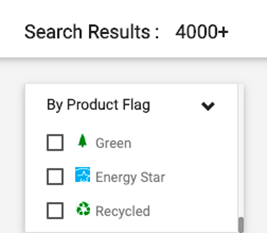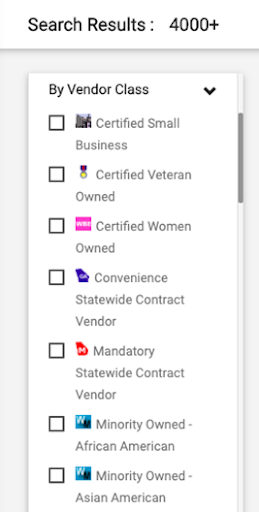Procurement
Maximizing state resources and minimizing harm
In alignment with USG Board of Regents policy and UGA Fininace and Administration strategic goals, sustainable purchasing considers a product’s environmental and social attributes along with performance, quality, service, and price. The Office of Sustainability collaborated with UGA Procurement and Sustainability Certificate students to develop guidelines for cost-effective, sustainable purchasing that maximizes state resources and long-term value for the university.
Sustainable Purchasing Guideline
The content on this page is a brief overview of the Sustainable Purchasing Guideline, which aims to improve the social and environmental impact of procurement decisions at UGA. Use this link to access the full document.
UGA Departments and purchasing agents are encouraged to:
- Develop and maintain information about environmentally and socially preferable products typically used by your department.
- Steward resources through sustainable purchasing best practices and resources, and educate employees.
- Submit new ideas, problems, or concerns to UGA Procurement at 706-542-2361 or procure@uga.edu.
Do you need it?
- Ensure that a need exists; consider reusing existing items and university surplus.
Life Cycle
- Consider total cost of ownership when evaluating a purchase.
- Seek durable products that can be recharged, repaired, refilled, upgraded, or reused.
- Prioritize water and energy conserving appliances and equipment.
- Purchase products made from recycled or repurposed materials and that can be recycled or repurposed after use.
Delivery and Packaging
- Use contracted suppliers and/or consolidate orders to reduce packaging and deliveries.
- Provide feedback to suppliers regarding packaging materials and practices, and request alternatives such as take-back programs and reusable and/or recyclable packaging.
- Set a minimum order value of $50.
Disposal
- Assess disposal requirements of each product and prioritize items that can be reused, recycled, or composted.
- Seek products with minimal packaging.
Hazards
- Avoid products containing particularly harmful substances whenever possible.
- Seek alternatives to products and processes that may be detrimental to the environment and the community.
Sourcing
- Prioritize materials and products harvested, extracted, or manufactured within Georgia.
- Prioritize vendors that are small, veteran-owned, women-owned, and/or minority-owned businesses.
- Consider the vendor’s sustainability, environmental, and corporate social responsibility practices.
Education/Outreach
- Develop and maintain information about environmentally and socially preferable products typically used by your department.
- Share lessons learned with others on campus.
Following are additional practices to consider based on various purchasing categories:
| Office Supplies |
|
| Appliances, Electronics, Equipment |
|
| Laboratory Supplies |
|
| Food |
|
| Cleaning Supplies |
|
| Packaging |
|
| Vendor Selection |
|
Environmental Sustainability
When searching for environmentally sustainable products in UGAmart, look for these Product Flag checkboxes:

Social Sustainability
When searching for socially sustainable products in UGAmart, look for these Vendor Class checkboxes:

Additional Tips
You can browse by “Eco & Diversity Products” in Staples through UGAmart. Click Browse
by Category,
select Eco & Diversity Products, and search within that category.
UGA Bulldog Print + Design offers bulk recycled-content paper at a discounted rate for UGA departments.
Some purchases are limited by state or federal laws, grants, or contracts that require purchase from a particular vendor. This guideline does not apply to cases that are subject to limitations imposed by federal and state laws, rules, and regulations and DOAS, University System of Georgia, and University of Georgia policies.